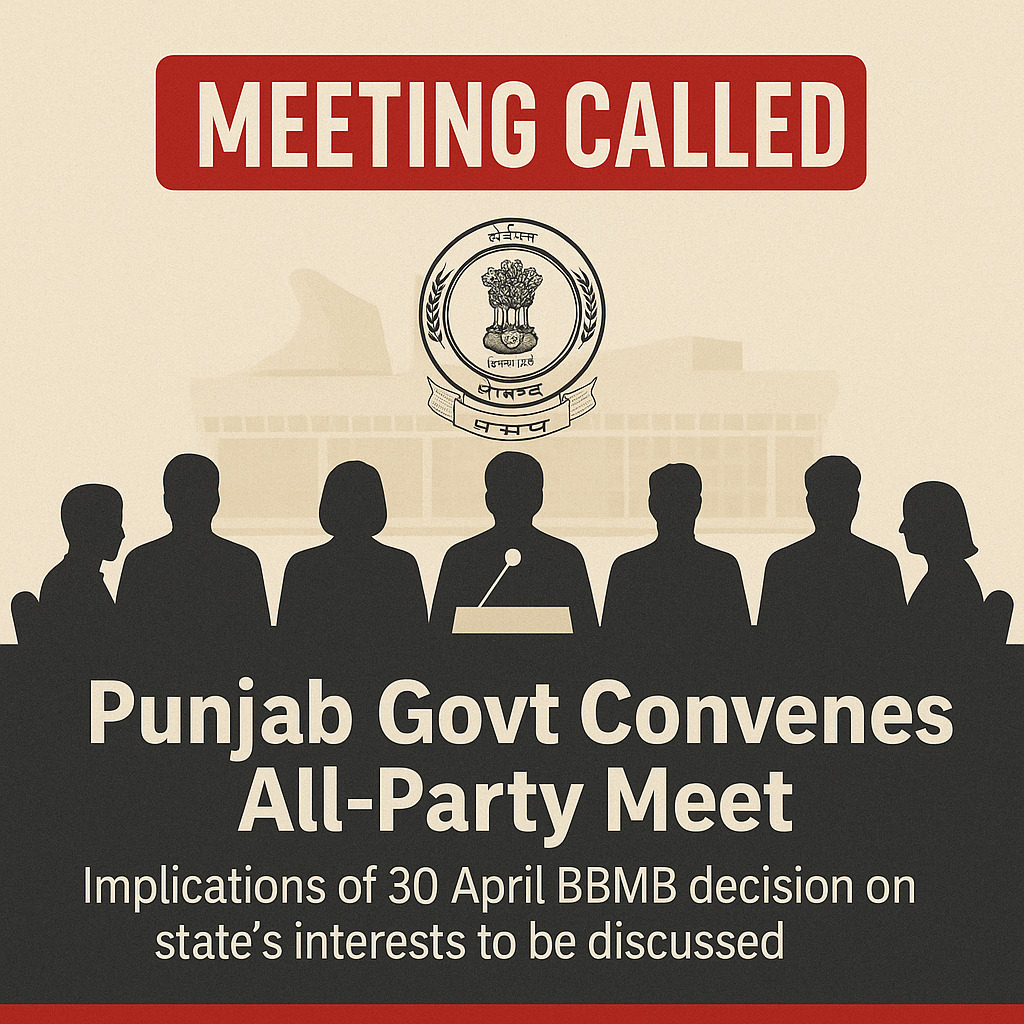In the wake of a crucial decision taken by the Bhakra Beas Management Board (BBMB) on April 30, 2025, which has sparked concerns about Punjab’s water and power rights, the Punjab Government has called for an all-party meeting to deliberate on the issue and safeguard the state’s interests.
An official communication issued by the Department of General Administration (Coordination Branch) has invited the heads of all major political parties in Punjab to attend a high-level meeting on May 2, 2025, at 10:00 a.m. at Punjab Bhawan, Sector 3, Chandigarh. The meeting will be chaired by the Chief Minister of Punjab and will focus on the implications of the BBMB’s recent decision, which the government has termed a matter of grave concern for Punjab’s rights.
The draft communication, marked as highly urgent, has been sent to the presidents of the Bahujan Samaj Party (BSP), Bharatiya Janata Party (BJP), Aam Aadmi Party (AAP), Punjab Pradesh Congress Committee (PPCC), Shiromani Akali Dal (SAD), and the Communist Party of India (Marxist), requesting their presence to ensure a united political response to the issue.
According to sources, the Punjab Government views the BBMB decision as potentially detrimental to Punjab’s long-standing water entitlements and its autonomy in power management. While the specifics of the BBMB resolution have not been disclosed in the document, the very call for a cross-party dialogue indicates that the stakes are high and may involve administrative control or allocation issues concerning water or hydroelectric resources.
Officials from the Coordination Branch have underlined the need for collective political wisdom and consensus, stating that the situation demands seriousness and a proactive stand from all stakeholders. The letter stresses that the issue is not just administrative but one that affects the core interests of Punjab and its people.
The move comes amid a politically charged atmosphere, where water rights and interstate resource sharing continue to remain sensitive issues, particularly in the context of Punjab’s agrarian economy and electricity distribution model. The all-party meeting is expected to result in a unified stance that the Punjab Government can project before the Centre and BBMB authorities.
This initiative marks a rare show of political inclusivity, as all parties—despite their ideological differences—are being asked to deliberate jointly to defend Punjab’s position. Observers believe that the outcome of this meeting could shape the state’s strategy in responding to BBMB’s action and may even lead to legal or parliamentary interventions.
A clearer picture of Punjab’s official stand and the unified political response is likely to emerge after tomorrow’s meeting.

